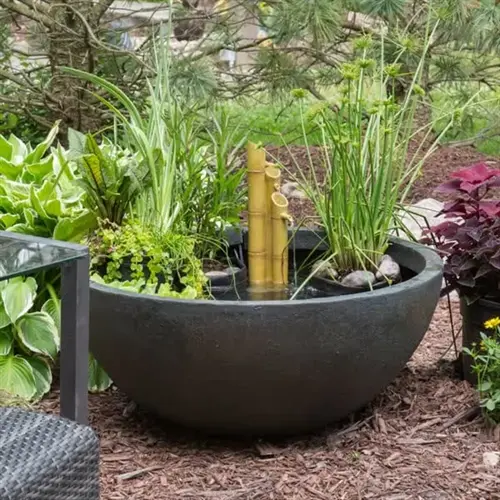How do I maximize sunlight in shaded areas?

Written by
Olivia Mitchell
Reviewed by
Prof. Samuel Fitzgerald, Ph.D.Vertical gardens in shady areas require creative solutions to allow sufficient sunlight to reach them. Herbs need at least six hours of sunlight each day to grow optimally. Reflective materials redirect any existing light with considerable effect. Artificial illumination makes up for natural deficiencies. The available photons are supplied as much as possible through strategic positioning, preferably and carefully pruning.
Panel Positioning
- Mount at 45-degree angles to light source
- Use anodized aluminum for 85% reflectivity
- Adjust seasonally for sun angle changes
Light Scheduling
- Set LED timers for 14-hour daily cycles
- Position lights 12 inches above herb canopy
- Use 4000K-6000K full-spectrum bulbs
Natural Light Optimization
- Prune overhead branches quarterly
- Install light tunnels in permanent shade
- Rotate planters weekly for even exposure
Panels of alloyed aluminum give excellent light amplification. These should be placed opposite light sources at proper angles. They must be kept clean to achieve maximum reflectivity. They work best with direct sunlight for at least two hours. They aid in getting the intensity of light without the expense of electricity.
LED grow lights work very well in total darkness. Full-spectrum bulbs imitate natural sunlight. Vertical systems use linear LED bars placed between tiers. Timers automate 14-hour cycles daily. Energy-efficient systems use little electricity.
Pruning purposely opens sun paths. Cut lower branches blocking early light. Thin dense shrub next to vertical garden. Do this every three months in an active growing season. This is a great method for working with a maturing landscape.
Light-diffusing polycarbonate breaks up connecting photons evenly. Place them as overhead panels in partial shade. This avoids hot spots and allows light to penetrate to lower leaves. These can also be combined with reflective side panels for total coverage. Frosted finishes are best with delicate herbage.
Begin utilizing these strategies as of today. Hang up a single reflective panel at a location above your garden. Add LED strips as a source of light for the morning hours. Prune a problematic branch each week. Observe how the herbs respond and adjust your strategies accordingly.
Read the full article: 12 Vertical Gardening Herbs You Can't Miss

